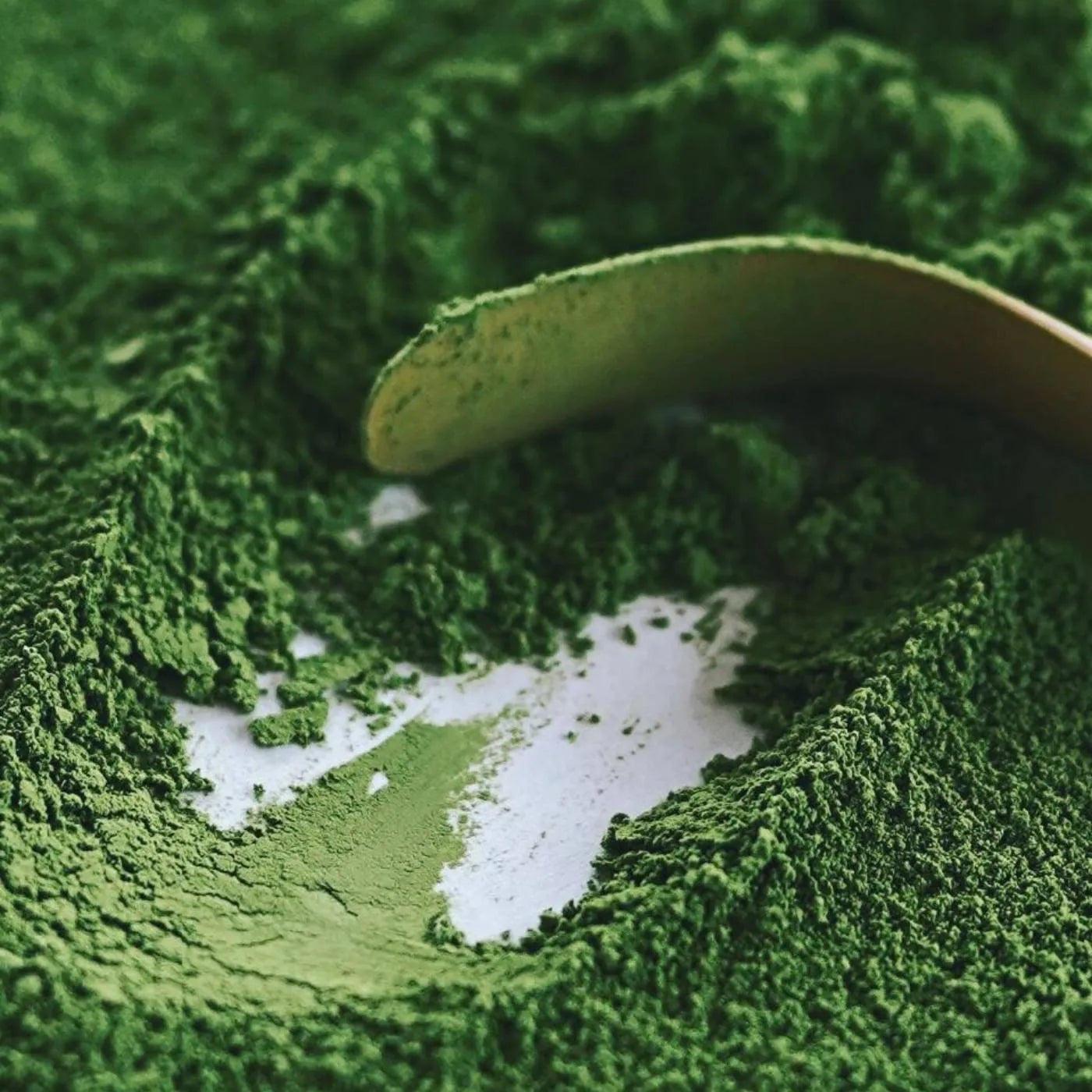More than a tea—matcha is a green powerhouse. Made from whole, shade-grown leaves stone-milled to perfection, Leafmill Matcha delivers a concentrated dose of antioxidants, L-theanine, chlorophyll, and essential nutrients. EGCG fights oxidative stress, L-theanine calms the mind while enhancing focus, and chlorophyll gently detoxifies. With every cup, you support energy, clarity, and wellness—from the inside out.

Rich in Antioxidants
Matcha is packed with powerful catechins like EGCG that fight free radicals, slow aging, and boost immunity.

Enhances Focus and Calm
L-theanine promotes calm alertness, while natural caffeine provides sustained focus without crashes or jitters.

Supports Natural Metabolism
Matcha gently boosts metabolism and supports fat burning, making it a great companion for a healthy lifestyle.

Gentle Detoxification
Chlorophyll in matcha supports detoxification and promotes digestive health.

Green Antioxidant Powerhouse
Catechins – EGCG
A powerful antioxidant—especially EGCG—which helps neutralize free radicals, protect cellular health, and is widely regarded as a natural super-antioxidant.

Calm Focus, Naturally
L-Theanine
A natural amino acid that promotes relaxation without drowsiness, L-theanine gives matcha its unique ability to calm the mind while enhancing focus.

Clean Inside Out
Chlorophyll & Dietary Fiber
Thanks to shade-growing and whole-leaf milling, matcha is rich in chlorophyll and natural fiber. Chlorophyll helps cleanse the body of toxins, while fiber supports digestion and a healthy gut.

Key to Wellness: A Full Spectrum of Nutrients
Vitamins & Minerals
Matcha provides a rich spectrum of nutrients, including vitamins A, C, E, and essential minerals like iron, potassium, and magnesium. These support immunity, skin health, and energy metabolism.
Who Should Avoid Matcha Powder?
While matcha is packed with benefits, it may not be suitable for everyone. If you’re in one of the following groups, please consult your doctor before use.
Pregnant and Breastfeeding Women
Matcha contains caffeine, which may affect fetal or infant development. Limit intake or consult your doctor.
Caffeine-Sensitive Individuals
Matcha may still cause palpitations, anxiety, or sleep disturbances in those sensitive to caffeine.
People with Sensitive Stomachs
As a cooling tea, matcha may irritate the stomach lining when consumed on an empty stomach.
Individuals with Iron Deficiency or Anemia
Polyphenols in matcha can interfere with iron absorption. Avoid drinking it with meals.
Those Taking Blood Thinners
Matcha is high in vitamin K, which may reduce the effectiveness of blood-thinning medications like warfarin.
Children Under 6 Years Old
Young children may struggle to metabolize caffeine, potentially affecting development and sleep.

